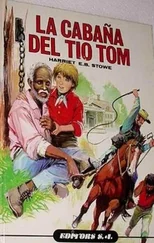Harriet Stowe - Household Papers and Stories
Здесь есть возможность читать онлайн «Harriet Stowe - Household Papers and Stories» — ознакомительный отрывок электронной книги совершенно бесплатно, а после прочтения отрывка купить полную версию. В некоторых случаях можно слушать аудио, скачать через торрент в формате fb2 и присутствует краткое содержание. Жанр: foreign_prose, на английском языке. Описание произведения, (предисловие) а так же отзывы посетителей доступны на портале библиотеки ЛибКат.
- Название:Household Papers and Stories
- Автор:
- Жанр:
- Год:неизвестен
- ISBN:нет данных
- Рейтинг книги:3 / 5. Голосов: 1
-
Избранное:Добавить в избранное
- Отзывы:
-
Ваша оценка:
- 60
- 1
- 2
- 3
- 4
- 5
Household Papers and Stories: краткое содержание, описание и аннотация
Предлагаем к чтению аннотацию, описание, краткое содержание или предисловие (зависит от того, что написал сам автор книги «Household Papers and Stories»). Если вы не нашли необходимую информацию о книге — напишите в комментариях, мы постараемся отыскать её.
Household Papers and Stories — читать онлайн ознакомительный отрывок
Ниже представлен текст книги, разбитый по страницам. Система сохранения места последней прочитанной страницы, позволяет с удобством читать онлайн бесплатно книгу «Household Papers and Stories», без необходимости каждый раз заново искать на чём Вы остановились. Поставьте закладку, и сможете в любой момент перейти на страницу, на которой закончили чтение.
Интервал:
Закладка:
My wife smiled, with that calm, easy, amused smile that has brightened up her sofa for so many years.
Bill added bitterly, —
“Of course, I couldn’t say that I wished the whole set and system of housekeeping women at the – what-’s-his-name? – because Sophie would have cried for a week, and been utterly forlorn and disconsolate. I know it’s not the poor girl’s fault; I try sometimes to reason with her, but you can’t reason with the whole of your wife’s family, to the third and fourth generation backwards; but I’m sure it’s hurting her health, – wearing her out. Why, you know Sophie used to be the life of our set; and now she really seems eaten up with care from morning to night, there are so many things in the house that something dreadful is happening to all the while, and the servants we get are so clumsy. Why, when I sit with Sophie and Aunt Zeruah, it’s nothing but a constant string of complaints about the girls in the kitchen. We keep changing our servants all the time, and they break and destroy so that now we are turned out of the use of all our things. We not only eat in the basement, but all our pretty table-things are put away, and we have all the cracked plates and cracked tumblers and cracked teacups and old buck-handled knives that can be raised out of chaos. I could use these things and be merry if I didn’t know we had better ones; and I can’t help wondering whether there isn’t some way that our table could be set to look like a gentleman’s table; but Aunt Zeruah says that ‘it would cost thousands, and what difference does it make as long as nobody sees it but us?’ You see, there is no medium in her mind between china and crystal and cracked earthenware. Well, I’m wondering how all these laws of the Medes and Persians are going to work when the children come along. I’m in hopes the children will soften off the old folks, and make the house more habitable.”
Well, children did come, a good many of them, in time. There was Tom, a broad-shouldered, chubby-cheeked, active, hilarious son of mischief, born in the very image of his father; and there was Charlie, and Jim, and Louisa, and Sophie the second, and Frank, – and a better, brighter, more joy-giving household, as far as temperament and nature were concerned, never existed.
But their whole childhood was a long battle, – children versus furniture, and furniture always carried the day. The first step of the housekeeping powers was to choose the least agreeable and least available room in the house for the children’s nursery, and to fit it up with all the old, cracked, rickety furniture a neighboring auction-shop could afford, and then to keep them in it. Now everybody knows that to bring up children to be upright, true, generous, and religious needs so much discipline, so much restraint and correction, and so many rules and regulations, that it is all that the parents can carry out, and all the children can bear. There is only a certain amount of the vital force for parents or children to use in this business of education, and one must choose what it shall be used for. The Aunt Zeruah faction chose to use it for keeping the house and furniture, and the children’s education proceeded accordingly. The rules of right and wrong of which they heard most frequently were all of this sort: Naughty children were those who went up the front stairs, or sat on the best sofa, or fingered any of the books in the library, or got out one of the best teacups, or drank out of the cut-glass goblets.
Why did they ever want to do it? If there ever is a forbidden fruit in an Eden, will not our young Adams and Eves risk soul and body to find out how it tastes? Little Tom, the oldest boy, had the courage and enterprise and perseverance of a Captain Parry or Dr. Kane, and he used them all in voyages of discovery to forbidden grounds. He stole Aunt Zeruah’s keys, unlocked her cupboards and closets, saw, handled, and tasted everything for himself, and gloried in his sins.
“Don’t you know, Tom,” said the nurse to him once, “if you are so noisy and rude, you’ll disturb your dear mamma? She’s sick, and she may die, if you’re not careful.”
“Will she die?” says Tom gravely.
“Why, she may.”
“Then,” said Tom, turning on his heel, – “then I’ll go up the front stairs.”
As soon as ever the little rebel was old enough, he was sent away to boarding-school, and then there was never found a time when it was convenient to have him come home again. He could not come in the spring, for then they were house-cleaning, nor in the autumn, because then they were house-cleaning; and so he spent his vacations at school, unless, by good luck, a companion who was so fortunate as to have a home invited him there. His associations, associates, habits, principles, were as little known to his mother as if she had sent him to China. Aunt Zeruah used to congratulate herself on the rest there was at home, now he was gone, and say she was only living in hopes of the time when Charlie and Jim would be big enough to send away, too; and meanwhile Charlie and Jim, turned out of the charmed circle which should hold growing boys to the father’s and mother’s side, detesting the dingy, lonely playroom, used to run the city streets, and hang round the railroad depots or docks. Parents may depend upon it that, if they do not make an attractive resort for their boys, Satan will. There are places enough, kept warm and light and bright and merry, where boys can go whose mothers’ parlors are too fine for them to sit in. There are enough to be found to clap them on the back, and tell them stories that their mothers must not hear, and laugh when they compass with their little piping voices the dreadful litanies of sin and shame. In middle life, our poor Sophie, who as a girl was so gay and frolicsome, so full of spirits, had dried and sharpened into a hard-visaged, angular woman, – careful and troubled about many things, and forgetful that one thing is needful. One of the boys had run away to sea; I believe he has never been heard of. As to Tom, the eldest, he ran a career wild and hard enough for a time, first at school and then in college, and there came a time when he came home, in the full might of six feet two, and almost broke his mother’s heart with his assertions of his home rights and privileges. Mothers who throw away the key of their children’s hearts and childhood sometimes have a sad retribution. As the children never were considered when they were little and helpless, so they do not consider when they are strong and powerful. Tom spread wide desolation among the household gods, lounging on the sofas, spitting tobacco juice on the carpets, scattering books and engravings hither and thither, and throwing all the family traditions into wild disorder, as he would never have done had not all his childish remembrances of them been embittered by the association of restraint and privation. He actually seemed to hate any appearance of luxury or taste or order, – he was a perfect Philistine.
As for my friend Bill, from being the pleasantest and most genial of fellows, he became a morose, misanthropic man. Dr. Franklin has a significant proverb, – “Silks and satins put out the kitchen fire.” Silks and satins – meaning by them the luxuries of housekeeping – often put out not only the parlor fire, but that more sacred flame, the fire of domestic love. It is the greatest possible misery to a man and to his children to be homeless; and many a man has a splendid house, but no home.
“Papa,” said Jenny, “you ought to write and tell what are your ideas of keeping a home.”
“Girls, you have only to think how your mother has brought you up.”
Nevertheless, I think, being so fortunate a husband, I might reduce my wife’s system to an analysis, and my next paper shall be, What is a Home, and How to Keep it.
Читать дальшеИнтервал:
Закладка:
Похожие книги на «Household Papers and Stories»
Представляем Вашему вниманию похожие книги на «Household Papers and Stories» списком для выбора. Мы отобрали схожую по названию и смыслу литературу в надежде предоставить читателям больше вариантов отыскать новые, интересные, ещё непрочитанные произведения.
Обсуждение, отзывы о книге «Household Papers and Stories» и просто собственные мнения читателей. Оставьте ваши комментарии, напишите, что Вы думаете о произведении, его смысле или главных героях. Укажите что конкретно понравилось, а что нет, и почему Вы так считаете.












